
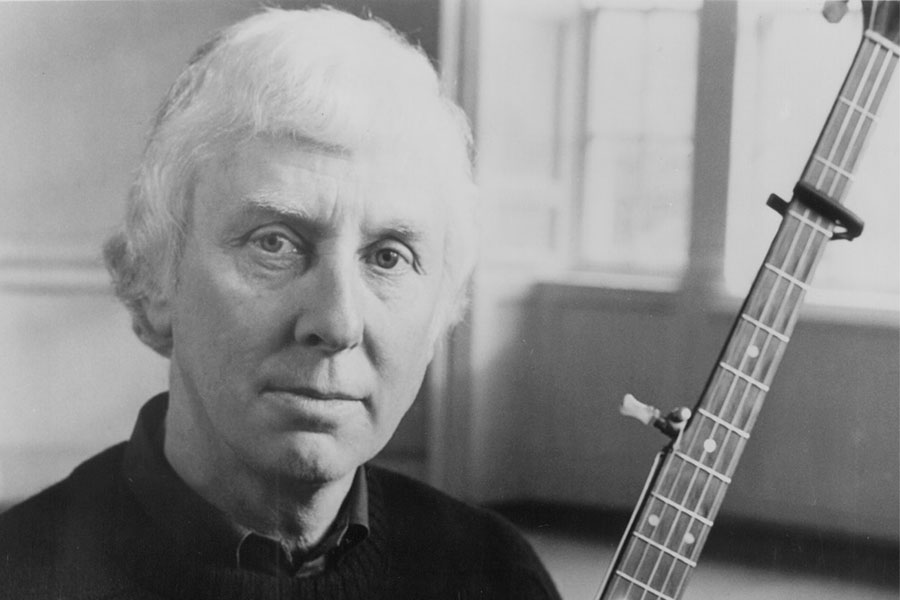
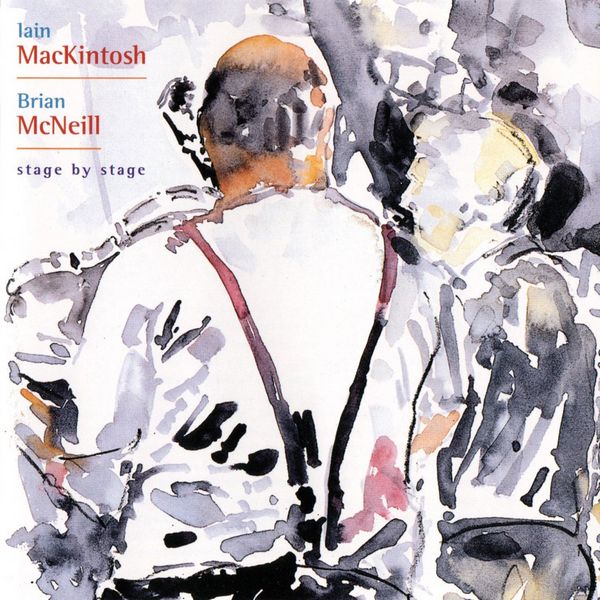 |
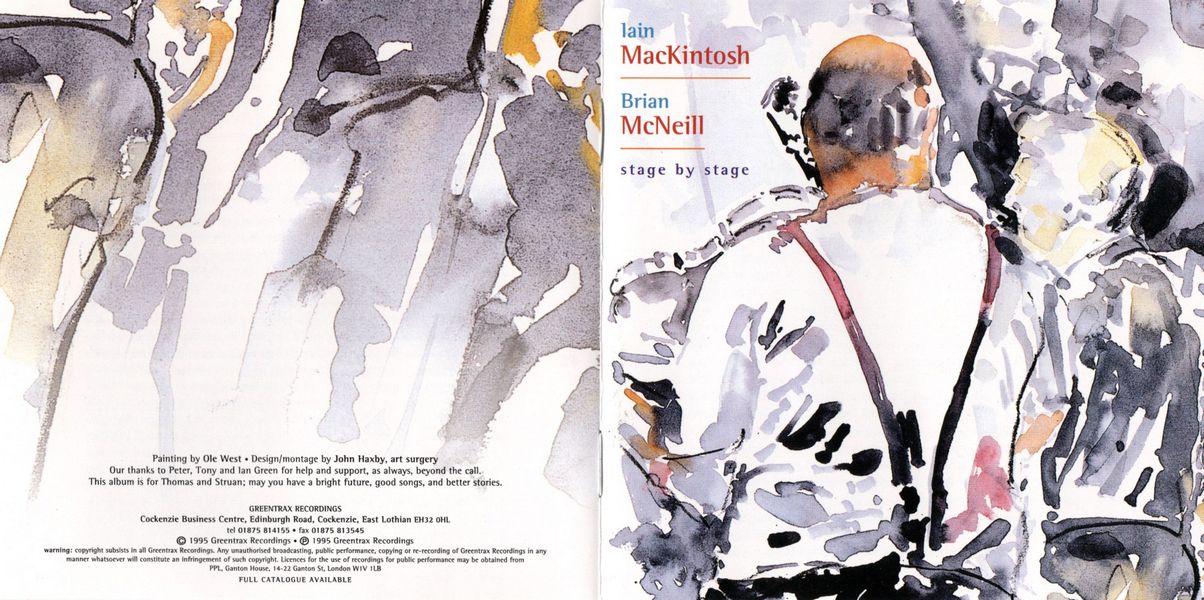
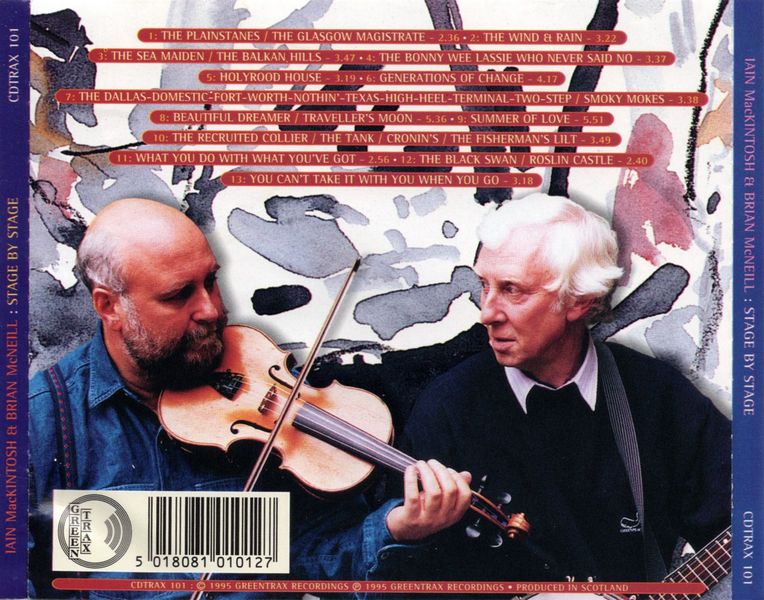
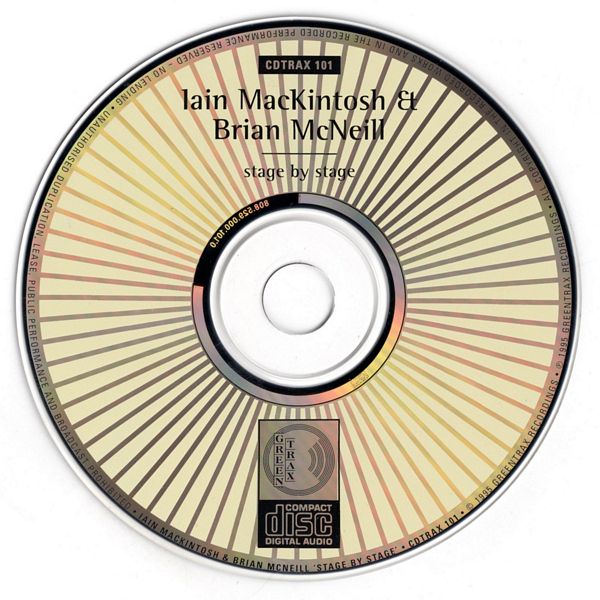 |
| more images |
Sleeve Notes
The Songs and Tunes
There's no common theme here, just a mixture of favourites from differing traditions and sources — a bunch of songs and tunes from an awful lot of stages.
The jigs The Fisherman's Lilt and Cronin's both came from Ireland, as did that fine air The Sea Maiden, whereas The Recruited Collier has a Tyneside provenance. Brian's tune The Tank also has its origins near the Tyne valley — the title's the nickname of the instrument it's played on, his twelve-string Stefan Sobell mandocello, built in the Hexhamshire hills.
The Balkan Hills started off life as a bagpipe tune, but the version played here owes as much to the country dance tradition as it does to the pipes. Holyrood House — learned by Iain from the late Roy Williamson of the Corries — and Roslin Castle have obvious Edinburgh and Lothian connections, as does The Black Swan, named after a now-defunct pub in the capital's High Street.
The Glasgow Magistrate — the title is slang for a herring, preferable a fat on — came of course, from further west. This appetising list of Clydeside's good life was married lo the tune Haste To The Wedding by Archie Fisher, and The Plainstanes was the paved area of Scotland's second city where the human variety used to disport themselves. The album's other Scottish traditional song, the sting-in-the-tail Bonnie Wee Lassie Who Never Said No, came via Brian's old Battlefield colleague Alan Reid from the singing of Jeannie Robertson. Brian takes full responsibility for the use of the children's song "Where Have You Been All The Day, Billy Boy" as a chorus; he says it has a false innocence thai suits the tale's slyness.
The abrupt death of real innocence is the heart of Peter Nelson's Summer Of Love, given to Iain in Delaware by Scottish expatriate Mike Dinsmore. Wind And Rain also came from across the pond, but the tale's no stranger to Scotland or to Scandinavia. This Appalachian version wastes not a single word and uses the sweetest of tunes to pare its murder story down to the chilling bone; storytelling at its best. For tune writing at its best, on the other hand, Abe Holzmann's Smoky Mokes and Stephen Foster's Beautiful Dreamer, both Mackintosh favourites for many years, are hard to beat. A more anarchic transatlantic note is sounded by the Dallas-Domestic-Fort-Worth-Nothin'-Texas-High-Heel-Terminal-Two-Step. The title's to do with travelling, of course; some day Brian swears he'll tell the story…
Travelling, indeed, was the theme of one of Iain and Brian's first collaborations, the Edinburgh Festival show "One More Road To Go Down". Traveller's Moon, a song which explores the bitter-sweet relationship most musicians have with the road, was the opening number. Matt Armour's Generations Of Change celebrates a different kind of journey, one which touches most Scots; the pace of change in our country shows no signs of slowing down. How many of us are as well adjusted to it as this fine song's narrator? For a long time now it's been one of the most requested items of the duo's repertoire, as has Si Kahn's uncompromising What You Do With What You've Got.
What you haven't got — or rather what you're not going to get to keep — his, of course, the theme of You Can't Take It With You When You Go. Beware ye hoarders of the world's goods, learn the banjo or the fiddle before it's too late! Iain once sang this song to an audience of millionaires. Funnily enough, it's one of the few stages that never invited him back…